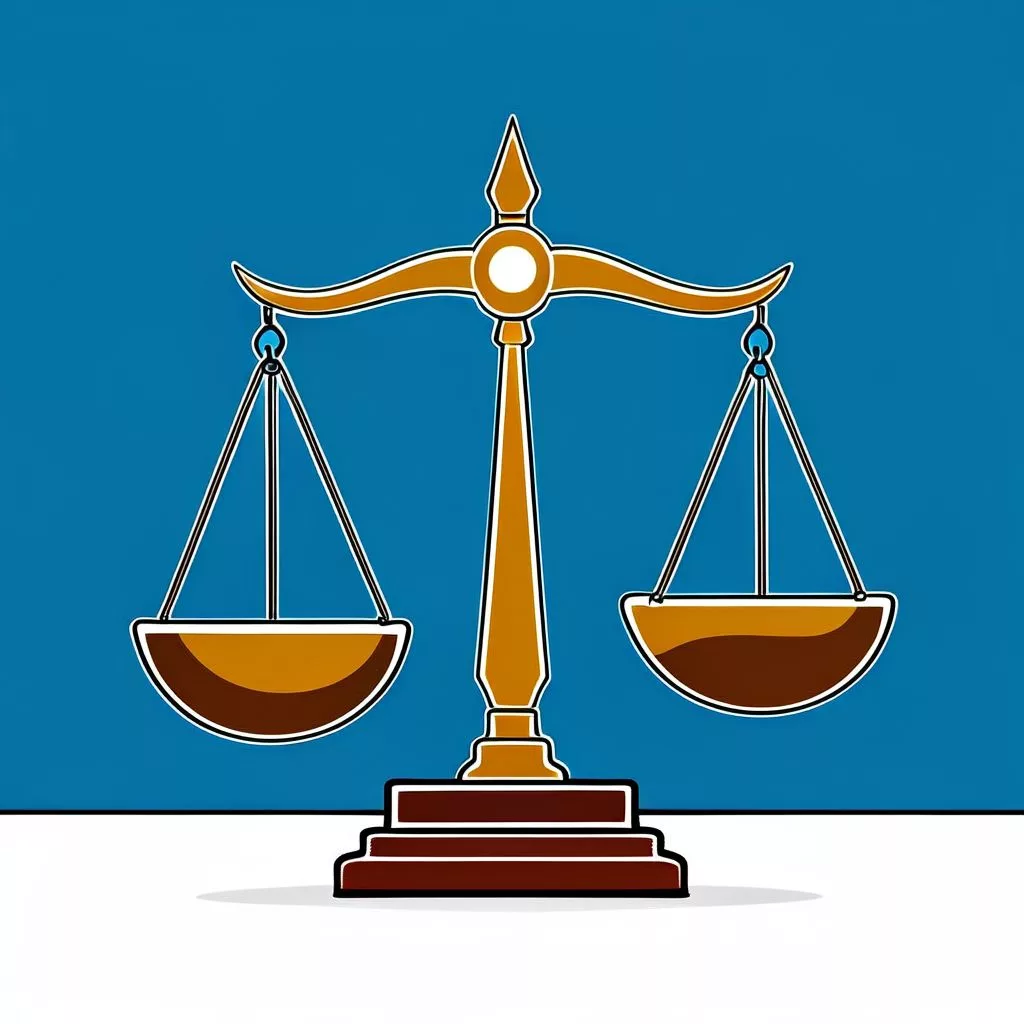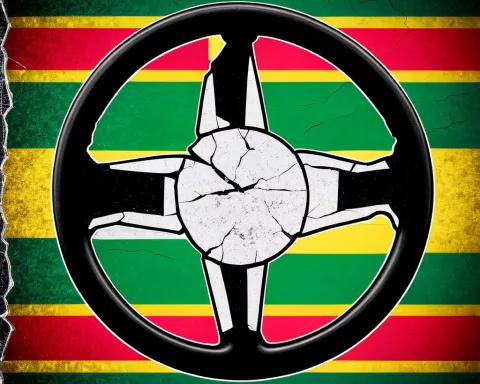South Africa’s Road Accident Fund (RAF) is in hot water for its plan to automate compensation for road accident victims. Critics argue that this change could lead to unfair payouts, as it relies on cold algorithms instead of considering each victim’s unique situation. Lawyers are worried this move strips away important rights and could create more legal battles, not fewer. As the RAF tries to fix its financial troubles, many believe victims should not pay the price for past mismanagement. Advocates are pushing back, insisting that every victim deserves fair and personalized compensation, not a one-size-fits-all answer.
What is the controversy surrounding South Africa’s Road Accident Fund (RAF)?
The Road Accident Fund (RAF) in South Africa faces controversy for its proposed automated compensation system, which critics argue undermines individual assessments required by law. This raises concerns about fairness, potential injustices, and the erosion of victims’ rights, prompting legal challenges from personal injury law firms.
The Controversy Surrounding RAF’s Standardised Compensation
The Road Accident Fund (RAF) in South Africa has sparked considerable controversy with its proposed standardized formulas for determining compensation for road accident victims. This initiative has faced fierce resistance from leading personal injury law firms, especially DSC Attorneys. Kirstie Haslam, a partner at DSC Attorneys, asserts that the RAF’s new approach misinterprets its mandate and undermines victims’ rights by reducing compensation to a mere algorithm, stripping away the individual legal entitlements that victims deserve.
Automation Over Justice?
At the heart of the RAF’s contentious proposal lies an online interactive platform designed to automate the calculation of settlements. The RAF argues that the existing system, reliant on detailed assessments by medical, actuarial, and psychological experts, is both inefficient and inconsistent. They claim that automation will enhance efficiency, fairness, and transparency. However, personal injury lawyers vehemently oppose this view. They argue that the RAF Act (Act 56 of 1996) mandates compensation based on individual losses through a legal process, not a social benefits scheme, suggesting that the Fund’s plan deviates from its original legal framework.
Critics of the proposal highlight that automating the compensation process could lead to unjust outcomes. The current legal process involves nuanced evaluations by experts who consider the unique circumstances of each case. By reducing this to a standardized algorithm, the RAF risks oversimplifying complex personal situations, potentially leading to unfair compensation for victims.
Furthermore, personal injury lawyers warn that the automation of settlements could erode the principle of individual justice. The current system allows for thorough expert assessments, which consider the specific losses and needs of each victim. Automating this process might overlook critical personal factors, resulting in cookie-cutter settlements that fail to address the unique circumstances of each case.
Exceeding Legal Powers
The RAF’s move to standardize damages calculation without amending the RAF Act has triggered substantial legal objections. The Act stipulates that only the Minister of Transport can set regulations, and any significant changes necessitate Parliament’s approval. By acting independently, the RAF is seen as overstepping its legal authority and operating beyond its mandate.
This unilateral approach by the RAF raises serious constitutional concerns. Legal experts argue that bypassing the legislative process undermines the checks and balances designed to prevent abuse of power. Any significant change to the compensation system should undergo thorough scrutiny and approval by Parliament to ensure it aligns with the legal principles and serves the best interests of the public.
Moreover, the RAF’s attempt to implement these changes without proper legislative backing risks setting a dangerous precedent. If allowed to proceed unchecked, this could open the door for other government entities to make unilateral decisions without the necessary oversight, potentially eroding the rule of law.
Compensation: A Legal Right
Section 3 of the RAF Act clearly states that the Fund exists to provide compensation for “loss or damage wrongfully caused by the driving of motor vehicles.” This legal provision means that every victim’s claim must be evaluated based on their unique circumstances rather than through a standardized algorithm. By treating damages as a uniform product, the RAF contradicts this fundamental legal principle, undermining the individualized assessment that the law requires.
The principle of individualized compensation is crucial in ensuring fairness and justice for road accident victims. Each case presents unique details and losses, which must be carefully considered to determine appropriate compensation. By abandoning this principle, the RAF risks compromising the core objective of its mandate, which is to provide equitable compensation for victims.
Additionally, treating compensation as a standard product disregards the diverse impact of accidents on different individuals. For example, the financial and emotional toll on a high-earning professional might differ significantly from that on a low-income worker. A one-size-fits-all approach fails to account for these differences, potentially leading to unjust outcomes.
Individual Needs Overlooked
The RAF’s proposal to use statistical models to compute compensation effectively erases the principle of individual assessment. For instance, a high-earning professional and a low-income worker might receive similar payouts, despite their vastly different actual losses. Similarly, a young, single mother who loses her income due to an accident may receive a standardized settlement that fails to reflect her real financial needs.
This approach risks significant disparities in compensation, failing to account for the varying degrees of impact that accidents have on different individuals. High-earning professionals, for instance, might experience substantial financial losses that a standardized payout cannot adequately cover. Similarly, victims with unique family or medical circumstances might find the standardized compensation insufficient to meet their specific needs.
Furthermore, the proposed system does not consider the long-term financial implications for victims. A young, single mother who loses her income due to an accident faces long-term financial instability. A standardized settlement might not provide adequate support for her and her children, ultimately leading to financial distress and additional hardship.
Automation and Increased Litigation
While the RAF argues that automation will reduce litigation, personal injury lawyers predict the opposite. If victims receive inadequate compensation, they will likely challenge the RAF in court. Unlike human experts, an algorithm cannot be cross-examined or reasoned with, making legal disputes inevitable.
The potential increase in litigation could further strain the already burdened judicial system. If victims feel that their compensation is unfair, they are more likely to seek legal recourse, leading to a surge in court cases. This, in turn, could result in prolonged legal battles, increased legal costs, and further delays in the compensation process.
Moreover, the reliance on algorithms could lead to a lack of accountability. In the current system, experts provide detailed reports justifying the amounts claimed, allowing for transparency and accountability. An automated system, on the other hand, might generate figures without clear explanations, making it difficult for victims to understand how their compensation was calculated and challenging the transparency of the process.
Transparency Concerns
Under the current system, experts provide detailed reports justifying the amounts claimed. An automated system would offer a computer-generated figure without a transparent explanation. This lack of transparency raises concerns in a constitutional democracy where state actions must be justifiable and accountable.
Transparency is a fundamental principle in ensuring trust and accountability in government actions. With the current system, victims can understand how their compensation is determined through detailed expert reports. An automated system, however, might produce figures without clear justifications, leaving victims in the dark about how their compensation was calculated.
The opacity of the automated system also undermines the principle of fairness. Without clear explanations, victims might feel that their compensation is arbitrary and unjust, eroding trust in the RAF and the overall compensation process. In a constitutional democracy, it is essential that state actions, especially those affecting individuals’ rights, are transparent and justifiable.
Financial Mismanagement at the Core
Legal experts believe that the RAF’s financial crisis drives this proposal. The RAF has a history of mismanagement, with billions lost due to inefficiency, corruption, and legal disputes. Instead of addressing its internal problems, the RAF appears to be cutting costs by reducing victims’ payouts.
The financial woes of the RAF have long been a concern. Mismanagement, inefficiencies, and corruption have contributed to the fund’s precarious financial situation. Rather than addressing these underlying issues, the RAF’s proposal to standardize compensation seems like a cost-cutting measure aimed at reducing payouts to victims.
Cutting costs at the expense of victims’ compensation is not a sustainable solution. Addressing the root causes of financial mismanagement, improving efficiency, and tackling corruption are crucial steps in ensuring the long-term viability of the RAF. Victims should not bear the burden of the fund’s financial mismanagement through reduced compensation.
Legal Action and Public Awareness
Given these serious legal concerns, personal injury law firms are prepared to challenge the RAF’s proposal. They plan to take legal action to prevent unlawful changes, lobby Parliament for lawful modifications, and run public awareness campaigns to educate road accident victims about their legal rights.
Legal action is a necessary step to ensure that the RAF’s proposal does not infringe upon victims’ rights. Personal injury law firms are ready to challenge the fund’s unilateral actions in court, seeking to uphold the principles of justice and fairness. By lobbying Parliament for lawful modifications, they aim to ensure that any changes to the compensation system are properly scrutinized and approved through the appropriate legislative process.
Public awareness campaigns also play a crucial role in educating road accident victims about their legal rights. By informing victims about the potential impact of the RAF’s proposal and their entitlement to fair compensation, these campaigns empower individuals to take informed actions and seek justice.
Beyond Statistics: The Need for Justice
Haslam emphasizes that South Africa’s road accident victims deserve fair and just compensation, not a one-size-fits-all formula imposed by a financially troubled RAF. DSC Attorneys and other reputable personal injury law firms remain resolute in their opposition to this proposal, fighting for the rights of individual victims to receive the compensation they are legally entitled to. As the battle over the RAF’s controversial reforms intensifies, it becomes clear that this issue extends beyond numbers—it’s fundamentally about justice.
The RAF’s attempt to streamline compensation through automation raises significant legal and ethical concerns. The potential impact on individual rights, transparency, and fairness cannot be overstated. Legal professionals and advocates continue to challenge these changes, urging for a system that truly serves justice. The discourse surrounding the RAF’s proposal reveals a critical intersection of law, technology, and human rights, emphasizing the necessity of maintaining individual assessments in the pursuit of equitable compensation.
In conclusion, the RAF’s proposal to automate compensation calculations overlooks the fundamental principles of justice and fairness inherent in the legal process. The potential for unfair outcomes, increased litigation, and lack of transparency underscores the need for a more thoughtful and just approach. Upholding the rights of road accident victims and ensuring that compensation is based on individual assessments are essential in maintaining a just and equitable system.
“`markdown
FAQ: South Africa’s Road Accident Fund Controversy
What is the Road Accident Fund (RAF) and its purpose?
The Road Accident Fund (RAF) in South Africa is established to provide compensation for loss or damage caused by motor vehicle accidents. It aims to support victims by ensuring they receive financial redress for their unique circumstances rather than through standardized payouts.
Why is the RAF’s plan to automate compensation controversial?
The RAF’s plan to automate compensation has sparked controversy because critics argue that it relies on cold algorithms that cannot adequately assess the unique needs and circumstances of individual victims. This approach may lead to unfair payouts and undermine the legal rights of those affected by accidents.
What are the potential legal implications of the RAF’s automation proposal?
The proposed automation of compensation calculations raises significant legal concerns, as it may overstep the RAF’s legal authority under the RAF Act. Critics argue that changes to compensation processes require parliamentary approval, and the RAF’s unilateral actions could set a dangerous precedent for governance and accountability.
How could automation affect the compensation process for accident victims?
Automating the compensation process might lead to standardized payouts that fail to reflect the actual losses and needs of individual victims. Critics warn that this could result in unjust outcomes and encourage more litigation as victims seek to challenge inadequate compensation in court.
What role do personal injury lawyers play in this situation?
Personal injury lawyers are actively opposing the RAF’s proposal by preparing legal challenges to protect victims’ rights. They aim to lobby Parliament for lawful modifications to the compensation system and run public awareness campaigns to inform victims about their entitlements and the potential impact of the proposed changes.
Why is fair compensation important for road accident victims?
Fair compensation is crucial for road accident victims as it directly impacts their recovery and quality of life. Each victim’s situation is unique, and a one-size-fits-all approach can overlook specific needs, potentially leaving individuals in financial distress. Ensuring equitable compensation maintains the principles of justice and fairness essential in a democratic society.
“`












